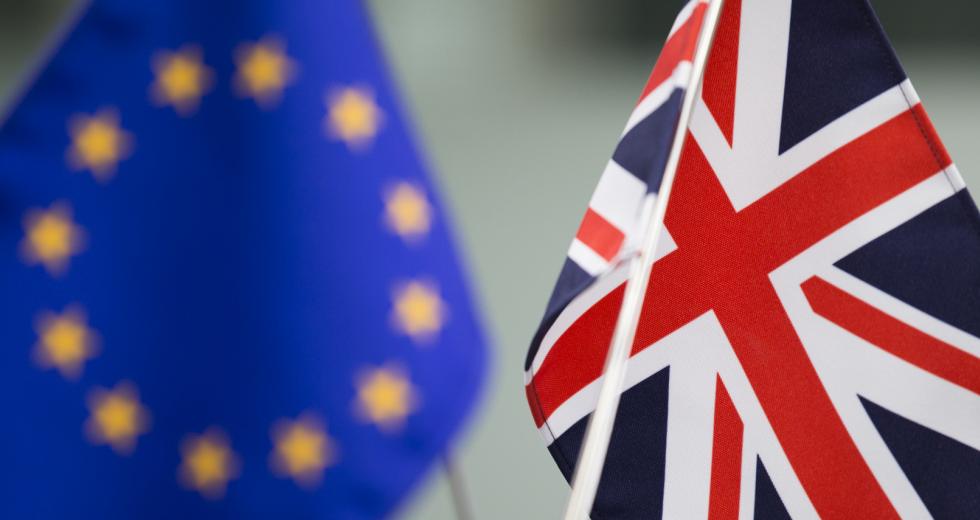For U.S. exporters already dealing with multiple sets of regulations, duties and tariffs across the globe, the post-Brexit world is a mess that will take years to sort out.
In the decades since the European Union was created, American exporters have, with some exceptions, been able to count on a uniform set of regulations and standards. That could end now as Britain will be freed from EU rules and could begin the years-long process of replacing them with its own, impacting companies ranging from behemoths such as Boeing Co. and Caterpillar Inc. — as well as smaller ones fighting for a toehold in the vast market.
“Every place there’s a regulation is a place this could balloon out of control,” says Chuck Wetherington, president of BTE Technologies Inc., a Maryland-based medical equipment exporter. “Our industry is screaming for harmonization, and instead we’re getting more and more disharmony.”
U.S. trade with the 28-member EU totaled $1.1 trillion last year — making it the world’s largest bilateral commercial relationship. Of that, 21 percent was with the U.K. alone, according to U.S. Commerce Department data, covering a vast swath of goods and services from air travel to wheat.
Sales Slowed
About a third of BTE’s medical equipment exports go to Europe, and a third of those go to the U.K., Wetherington says. BTE uses computers and robotics in highly engineered machines to simulate human movement and accelerate rehab for people recovering from injuries. The immediate impact of the decision by the U.K. to leave the EU will be a drag on buying, as potential customers wait to see what happens with regulations and reimbursements, Wetherington says. He compares the shock to what happened with Obamacare in the U.S., when challenges to the law dragged on and slowed his sales.
Even if Britain ultimately adopts regulations identical to Europe’s, it will take a couple of years, Wetherington says. Meanwhile, there’s a new “regulatory island,” he says, with its own rules for tariffs, duties and material standards. The European market will be more like Asia, where BTE has to comply with different rules in Japan, South Korea, Hong Kong, China and Malaysia.
Boeing Planes
Other industries are going through similar analysis. Brexit could hurt planemaker Boeing, the largest U.S. exporter, if it causes air travel to dip or triggers a worldwide recession. Since airplane sales tend to mirror global growth, “the key Brexit risk is that financial contagion from the vote slows growth in the real economy,” Seth Seifman, an aerospace analyst with JPMorgan Chase Bank NA, says in a report made to clients Friday.
Plane sales could also be clipped by uncertainty over whether U.K. airlines will still enjoy full access to Europe’s single aviation market, or if they will be forced to renegotiate complex revenue-sharing agreements with their North American counterparts. “As a global business, we constantly manage changes in political circumstances and we will continue to do so now with the evolving situation in the U.K. and Europe,” Boeing says in a statement.
Two Years
The regulatory changes won’t be known for some time. Once the U.K. notifies the EU of its intention to leave, it will have two years to negotiate the exit under the terms of its treaty. But the process could take more than five to 10 years, given its breadth and complexity, according to an International Air Transport Association report.
For some technology companies, there could be an upside. The U.K. might ease rules on privacy policies, since the European Union has some of the strictest in the world, says Todd Thibodeaux, president and CEO of CompTIA, a global technology trade association. That would benefit companies like Google, Facebook and Apple, he says.
Britain’s exit may complicate efforts to further ease trade between the U.S. and the European bloc. The Obama administration has been working with the EU to forge the Trans-Atlantic Trade and Investment Partnership, a free-trade deal that seeks to cut tariffs and untangle a patchwork of regulations items from autos to songwriting royalties. In a visit in April to London, Obama said Britain’s departure from the pact could force it to “the back of the queue” in negotiations.
The U.K.’s exit from the European bloc will be protracted, and the U.S. and EU could conclude their trans-Atlantic trade deal in the meantime, says Bill Reinsch, a fellow at the Stimson Center in Washington.
Climate Agreement
Brexit could force a shakeup in the way the U.K. and Europe meet carbon-cutting targets agreed to as part of the landmark international accord reached in Paris last year. The U.K.’s pledge fell under the EU’s umbrella — and depending on when Britain’s exit is finalized, it might be forced to offer a new plan.
Drawn-out negotiations between the U.K. and Europe — including the potentially two years’ worth of talks — would keep existing climate commitments the same if the Paris deal is ratified and comes into force first, says Tom Burke, chairman of the London-based sustainability group E3G.
As long as those talks are still under way, “we remain a member bound by every European law and all the treaties we’re obliged to remain until that process is over,” Burke says. “The Paris agreement will be ratified this year, and Britain will have ratified it as part of the EU.”
One of the Paris deal’s major architects, the head of the UN Framework Convention on Climate Change, Christiana Figueres, says the U.K . divorce from the EU would require “a recalibration.”
In that case, the decision facing the 27 remaining member nations will be whether — and how — to boost their individual pledges to meet the bloc’s broader climate commitment. The alternative is lowering the EU commitment overall to make up for the loss of the U.K., which has been one of the EU’s largest greenhouse gas emitters and a leader in tackling climate change.



